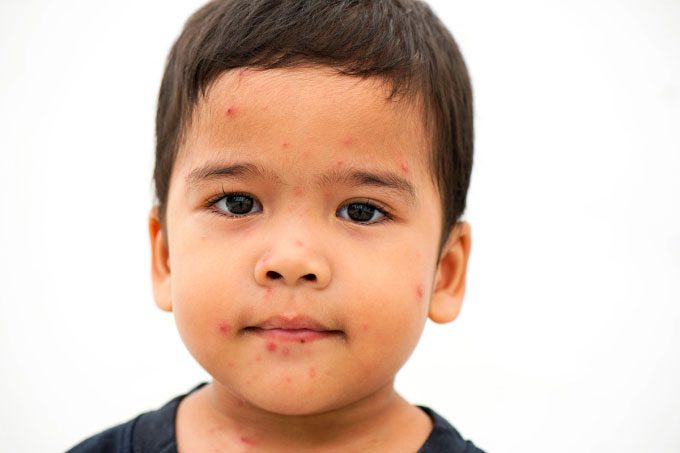India Discovers Many Children Under 5 Infected with a Rare Flu Strain Known as “Tomato Flu”.
“Tomato Flu” was first identified on May 6, and to date, it has infected 82 children, all under the age of 5, according to a report published in The Lancet Medical Journal on August 17. The condition is named after the distinctive skin symptoms observed in patients.

Children infected with tomato flu often present with rashes similar to hand-foot-and-mouth disease. (Photo: NY Post)
All affected children develop red blisters on their bodies. The virus also causes fever and joint pain. Other symptoms include vomiting, diarrhea, and dehydration. In some rare cases, changes in color in the hands and feet have been reported.
“Just as we are dealing with the fourth wave of Covid-19, a new virus called tomato flu has emerged in the state of Kerala. The disease is rare, currently circulating, and not life-threatening,” The Lancet reported, advising that “based on our experiences dealing with Covid-19, we should remain vigilant to prevent future outbreaks.”
According to Subhash Chandra, an associate professor of internal medicine at Amrita Hospital, this is not a fatal illness, but it spreads easily from person to person.
So far, the virus has been reported in Kollam district of Kerala, India, and nearby areas such as Anchal, Aryankavu, and Neduvathur. Children are the most at risk for tomato flu, as the virus is prevalent in this age group and is often transmitted through close contact. Children are also more susceptible to infection when using diapers, touching unclean surfaces, and putting objects directly into their mouths.
Experts state that there is currently no specific treatment or vaccine to prevent tomato flu. Professor Chandra recommends that patients with tomato flu should drink plenty of fluids, rest in bed, and isolate themselves for 5 to 7 days. This treatment approach is similar to that for other viral fevers.
Scientists indicate that the virus spreads very easily and shares many similarities with hand-foot-and-mouth disease. Therefore, if authorities do not control the spread of tomato flu in children, the virus could proliferate significantly and lead to serious consequences when it also circulates among adults.



















































